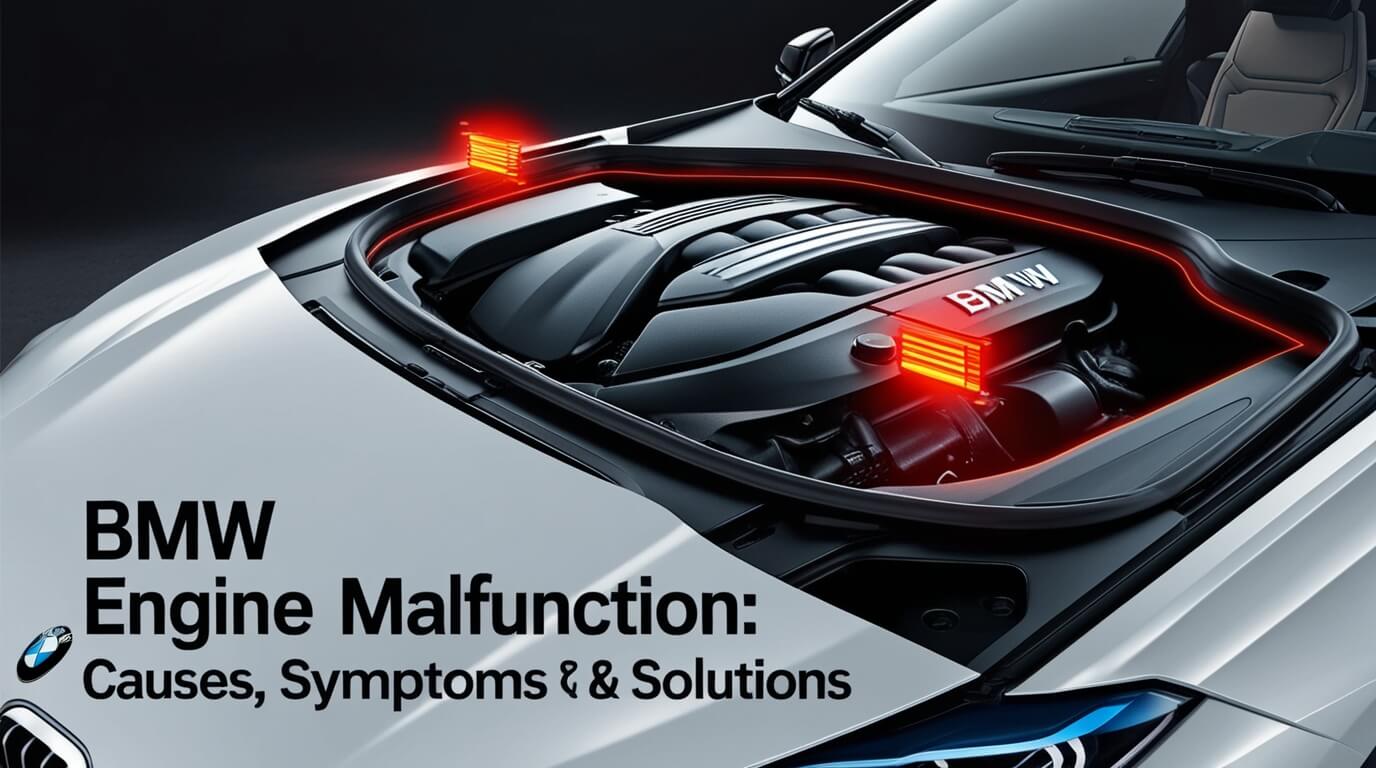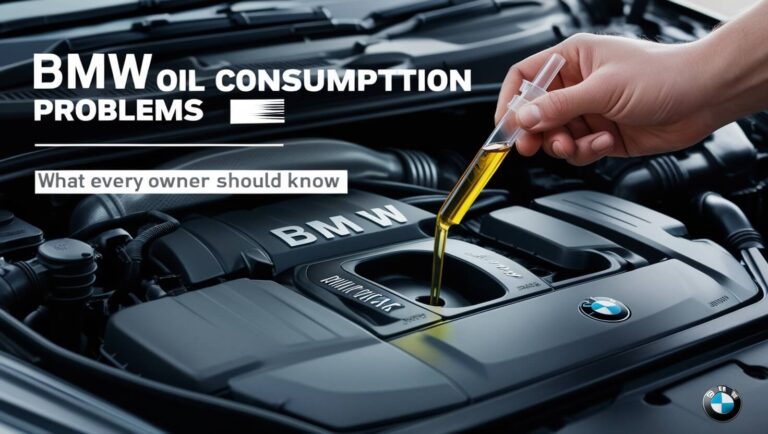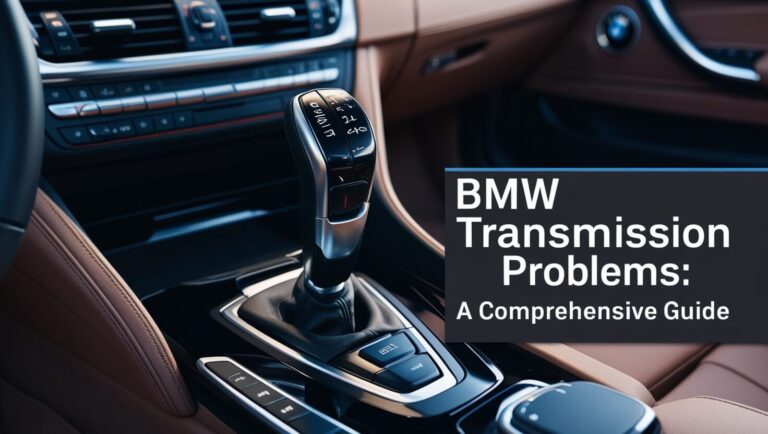
BMW engine malfunction warnings signal potential issues with your vehicle’s performance and require prompt attention. These alerts can stem from various sources, including sensor problems, fuel system issues, or mechanical failures. In this comprehensive guide, we’ll explore the ins and outs of BMW engine malfunctions, helping you identify, address, and prevent these issues.
What is a BMW Engine Malfunction?
When your BMW’s onboard computer detects a problem with the engine or its related systems, it triggers an engine malfunction warning. This alert appears on your dashboard, often accompanied by a reduction in engine power or performance.
Common warning messages include:
- “Engine Malfunction – Reduced Power”
- “Drivetrain Malfunction”
- “Check Engine Light”
These warnings shouldn’t be ignored, as they can indicate serious issues that may lead to costly repairs if left unaddressed.
Common Causes of BMW Engine Malfunction
BMW engines are complex machines, and several factors can trigger a malfunction warning. Let’s explore the most frequent culprits:
Sensor Issues
Modern BMWs rely on numerous sensors to monitor engine performance. When these sensors fail or provide inaccurate readings, it can lead to engine malfunction warnings. Common problematic sensors include:
- Mass airflow sensor
- Oxygen sensor
- Crankshaft position sensor
- Camshaft position sensor
A faulty sensor can cause your BMW to run poorly or even stall, triggering the engine malfunction alert.
Fuel System Problems
The fuel system is crucial for your BMW’s performance. Issues here often result in engine malfunction warnings. Potential problems include:
- Faulty fuel injectors
- Clogged fuel filters
- Failing fuel pumps
- Incorrect fuel pressure
These issues can lead to poor engine performance, reduced fuel efficiency, and in severe cases, engine damage.
Electrical Faults
Electrical problems can wreak havoc on your BMW’s engine management system. Common electrical issues include:
- Battery problems
- Alternator failures
- Wiring harness issues
- Blown fuses
Electrical faults can cause erratic engine behavior and trigger malfunction warnings.
Exhaust System Issues
Your BMW’s exhaust system plays a crucial role in engine performance. Problems here can lead to engine malfunction warnings. Watch out for:
- Catalytic converter failures
- Exhaust leaks
- Oxygen sensor issues
- Clogged mufflers
A malfunctioning exhaust system can cause poor engine performance and increased emissions.
Mechanical Problems
Sometimes, engine malfunction warnings stem from mechanical issues within the engine itself. These can include:
- Worn piston rings
- Valve train problems
- Timing chain issues
- Low oil pressure
Mechanical problems often require more extensive repairs and can lead to significant damage if not addressed promptly.
Emissions Control System Failures
BMWs are equipped with sophisticated emissions control systems. When these systems fail, it can trigger engine malfunction warnings. Common issues include:
- EGR valve failures
- Evaporative emissions system leaks
- Faulty purge valves
- Malfunctioning PCV systems
Emissions system problems can affect your BMW’s performance and its ability to pass emissions tests.
Recognizing the Symptoms of BMW Engine Malfunction
Spotting the signs of an engine malfunction early can save you from costly repairs down the road. Here are key symptoms to watch for:
Warning Lights and Messages
The most obvious sign of an engine malfunction is the appearance of warning lights or messages on your dashboard. These may include:
- Check Engine Light
- Engine Malfunction warning
- Drivetrain Malfunction alert
Don’t ignore these warnings – they’re your first line of defense against serious engine problems.
Performance Changes
Engine malfunctions often manifest as changes in your BMW’s performance. Look out for:
- Reduced power or acceleration
- Engine misfires or rough running
- Stalling or difficulty starting
- Unusual idling behavior
If you notice any of these symptoms, it’s time to have your BMW checked out.
Unusual Noises and Vibrations
Engine malfunctions can cause strange noises or vibrations. Be alert for:
- Knocking or ticking sounds
- Excessive engine vibration
- Whistling or hissing noises
- Loud exhaust noise
These sounds and sensations can indicate serious engine problems that need immediate attention.
Increased Fuel Consumption
A sudden increase in fuel consumption can signal an engine malfunction. If you find yourself filling up more frequently without a change in driving habits, it’s worth investigating.
Diagnosing BMW Engine Malfunction
Proper diagnosis is crucial for effectively addressing engine malfunctions. Here’s how to approach the problem:
Importance of Proper Diagnosis
Accurate diagnosis is key to resolving BMW engine malfunctions efficiently. It helps:
- Pinpoint the exact cause of the problem
- Avoid unnecessary repairs
- Save time and money
- Prevent further damage to your BMW
DIY Diagnostic Methods
While professional diagnosis is often necessary, there are some steps you can take at home:
- Check for loose gas caps or other simple issues
- Use an OBD-II scanner to read error codes
- Inspect visible components for damage or wear
- Listen for unusual engine noises
Remember, DIY diagnostics have limitations and shouldn’t replace professional assessment for serious issues.
Professional Diagnostic Tools and Procedures
BMW-certified technicians use sophisticated tools and procedures to diagnose engine malfunctions, including:
- Advanced diagnostic scanners
- Oscilloscopes for electrical system analysis
- Compression and leak-down tests
- Fuel system pressure tests
These tools allow for precise identification of engine malfunction causes.
Immediate Steps When Facing a BMW Engine Malfunction
When you encounter an engine malfunction warning, take these steps:
Safety First: What to Do When the Warning Appears
- Reduce speed and pull over safely if possible
- Turn off unnecessary electrical systems to reduce load on the engine
- If safe to do so, restart the engine to see if the warning clears
- Contact BMW roadside assistance or a trusted mechanic for advice
Temporary Fixes and Workarounds
In some cases, you may be able to temporarily resolve the issue:
- Disconnecting the battery for a few minutes can sometimes reset the system
- Tightening a loose gas cap might clear some warnings
- Topping up fluids (oil, coolant) can sometimes resolve warnings
Remember, these are temporary solutions. Proper diagnosis and repair are still necessary.
When to Stop Driving and Seek Help
Stop driving and seek immediate assistance if:
- The engine is making loud or unusual noises
- You notice smoke or burning smells
- The car is shaking severely or losing power rapidly
- You feel it’s unsafe to continue driving
Your safety should always be the top priority when dealing with engine malfunctions.
Resolving BMW Engine Malfunction Issues
Once diagnosed, here’s how to approach resolving engine malfunction issues:
Common Repairs for Specific Problems
- Sensor replacements for faulty sensors
- Fuel system cleaning or component replacement
- Electrical system repairs or battery replacement
- Catalytic converter replacement for exhaust issues
- Engine rebuild for severe mechanical problems
The specific repair will depend on the diagnosed issue.
DIY Repairs vs. Professional Service
While some minor issues can be addressed at home, most BMW engine malfunction repairs require professional service. Consider:
- Complexity of BMW engines
- Need for specialized tools and diagnostic equipment
- Risk of further damage from improper repairs
- Warranty implications of DIY repairs
For most engine malfunction issues, professional service is the safest and most cost-effective option.
Cost Considerations for Various Repairs
Repair costs can vary widely depending on the issue:
- Sensor replacements: $100 – $500
- Fuel system repairs: $300 – $1500
- Major mechanical repairs: $1000 – $5000+
- Engine replacements: $5000 – $15000+
Always get a detailed estimate before proceeding with repairs.
Preventing BMW Engine Malfunction
Prevention is always better than cure. Here’s how to keep your BMW running smoothly:
Regular Maintenance Tips
- Follow BMW’s recommended service schedule
- Change oil and filters regularly
- Keep all fluids at proper levels
- Address minor issues promptly before they become major problems
Consistent maintenance is key to preventing engine malfunctions.
Importance of Quality Parts and Fluids
Using high-quality parts and fluids can significantly reduce the risk of engine malfunctions:
- Use BMW-approved or OEM parts for replacements
- Stick to recommended oil grades and types
- Use high-quality fuel from reputable stations
- Avoid cheap aftermarket parts that may not meet BMW’s standards
Investing in quality now can save you from costly repairs later.
Driving Habits That Promote Engine Health
Your driving habits can impact engine health:
- Avoid aggressive acceleration and braking
- Allow the engine to warm up before heavy loads
- Don’t ignore warning lights or unusual noises
- Avoid short trips that don’t allow the engine to reach operating temperature
Gentle, mindful driving can extend your BMW’s engine life and reduce the risk of malfunctions.
Long-term Impact of Engine Malfunction on BMWs
Engine malfunctions can have lasting effects on your BMW:
Effects on Vehicle Performance and Lifespan
Unresolved engine malfunctions can lead to:
- Reduced engine power and efficiency
- Increased wear on engine components
- Higher risk of catastrophic engine failure
- Shortened overall vehicle lifespan
Prompt attention to engine malfunctions is crucial for maintaining your BMW’s performance and longevity.
Impact on Resale Value
A history of engine malfunctions can significantly impact your BMW’s resale value:
- Potential buyers may be wary of vehicles with a history of engine problems
- Unresolved issues can lead to lower offers or difficulty selling
- Well-documented repairs and maintenance can help maintain value
Keeping your BMW in top condition is key to preserving its value.
Warranty and Insurance Considerations
Engine malfunctions can affect your warranty and insurance:
- Some repairs may be covered under warranty or extended warranty plans
- Ignoring warnings or using non-approved parts can void warranties
- A history of engine problems may impact insurance premiums or coverage
Always consider warranty and insurance implications when dealing with engine malfunctions.
BMW Models Prone to Engine Malfunction
While any BMW can experience engine malfunctions, some models are more prone to issues:
Overview of Affected Series and Years
- 3 Series (E90/E91/E92/E93): 2006-2011
- 5 Series (E60/E61): 2004-2010
- X3 (E83): 2004-2010
- X5 (E70): 2007-2013
These models have higher reported rates of engine malfunction issues.
Known Issues with Specific Engines
- N54 engine: High-pressure fuel pump failures, turbocharger issues
- N52 engine: Valve cover gasket leaks, VANOS solenoid failures
- M54 engine: Oil separator valve failures, cooling system issues
- N63 engine: Excessive oil consumption, timing chain problems
Familiarizing yourself with common issues for your BMW model can help you stay ahead of potential problems.
FAQ About BMW Engine Malfunction
Can I drive with an engine malfunction warning?
While you might be able to drive short distances with an engine malfunction warning, it’s not recommended. The warning indicates a problem that could worsen with continued driving, potentially leading to more expensive repairs or even engine failure. It’s best to have your BMW checked as soon as possible.
How much does it cost to fix a BMW engine malfunction?
Repair costs vary widely depending on the specific issue. Minor problems like sensor replacements might cost a few hundred dollars, while major mechanical repairs could run into thousands. Always get a detailed diagnosis and estimate before proceeding with repairs.
Are BMW engine malfunctions covered under warranty?
Many engine malfunction issues are covered under BMW’s standard 4-year/50,000-mile warranty. Some components may have extended coverage. However, coverage depends on the specific problem, your vehicle’s age and mileage, and whether proper maintenance has been performed. Check your warranty details or consult with a BMW dealer for specific coverage information.
Conclusion
BMW engine malfunctions can be stressful, but with the right knowledge and approach, they’re manageable. Regular maintenance, prompt attention to warnings, and professional service when needed can keep your BMW running smoothly and prevent costly repairs. Remember, your BMW is a sophisticated machine – treat it with care, and it will reward you with years of driving pleasure. If you encounter engine malfunction issues, don’t panic. Use the information in this guide to understand the problem, take appropriate immediate actions, and seek professional help when necessary. With proper care and attention, you can overcome engine malfunction challenges and enjoy your BMW to its fullest potential.






